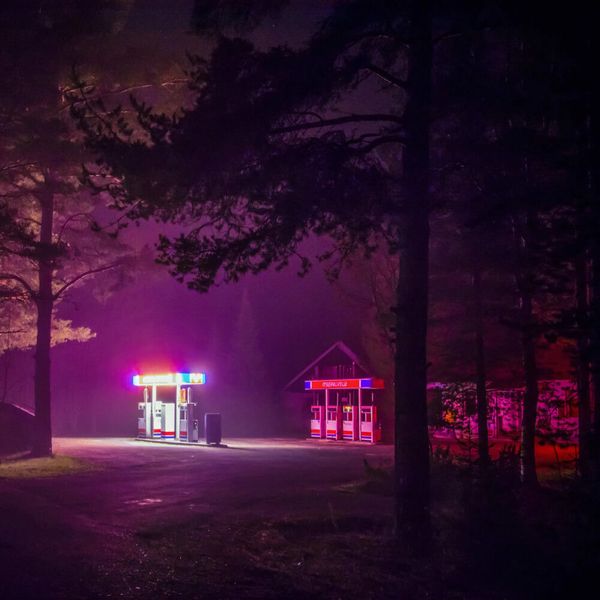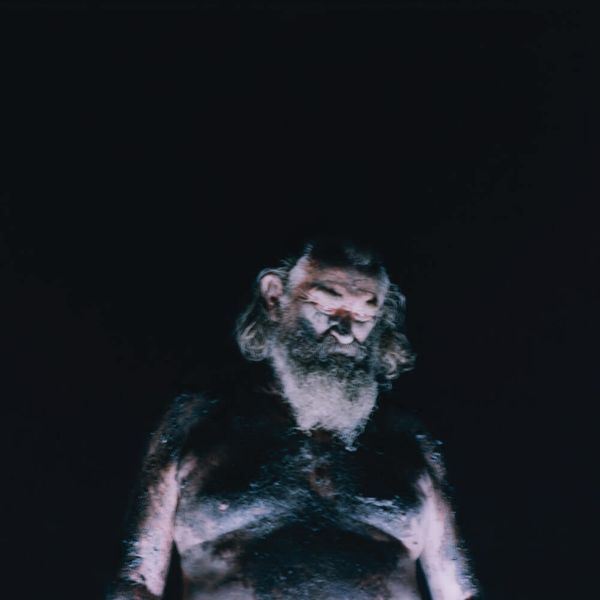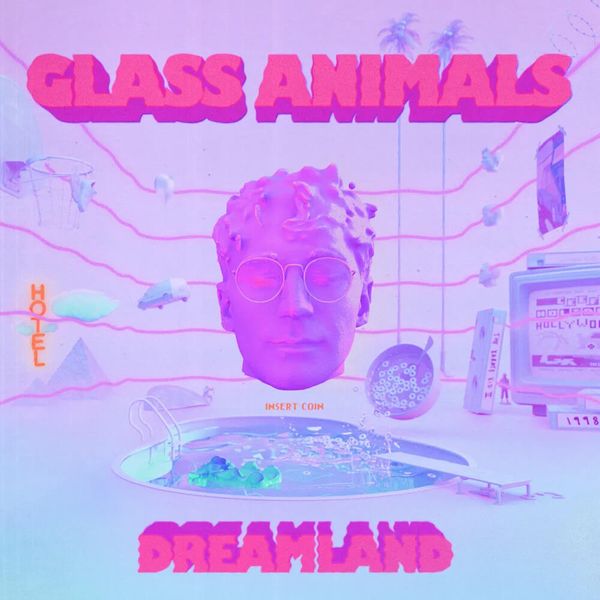André
Though by no means perfect, Moaning’s 2018 debut was a striking opening statement. Cathartic, powerful, yet with plenty of room to grow. Whilst it’s hardly unusual for post-punk bands to transition into new wave, it seems as though Moaning have done so prematurely. It’s almost as if they’ve missed a step along the way. Jagged and jittery guitar riffs make way for soaring synths, with Sean Solomon striving for more melodic vocal passages. Shoegaze elements remain, but there’s no denying the intention: this is a synth-pop record exuding the most glaring ’80s nostalgia imaginable.
Despite a lack of originality, however, Uneasy Laughter captures the sound rather nicely, and it’s often a very enjoyable listen. The melodies are contagious, the rhythm section is excellent throughout, and the multiple synth flourishes are sublime. It’s just been done before, so many, many times. The dark romanticism that made Moaning so interesting to begin with still remains, but it’s buried underneath the synth-pop sheen. It’s a perfectly fine album, and one that will prove an ear-worm for a number of listeners. There’s just far more beneath the surface that Moaning are hiding from us. And I can’t really fathom why.
6 out of 10
Fred
We reviewed a HAIM album a couple of years ago. It was polished, professional pop perfectly adequate for disposable summer listening. Uneasy Laughter has a similarly pleasant-yet-forgettable demeanor. It’s a distinctly west coast breed of gothy synth pop, moody in a painstakingly dyed and straightened fringe kind of way.
Sean Solomon, Moaning’s guitarist/singer, says he wants listeners to feel less alone. Finally, music that lets you know you’re not alone. Why didn’t someone think of that sooner? The mood is solid, to be fair. Moaning’s arrangements are tight and focused, with the synths in particular flourishing in better moments. The way they ripple out on “Stranger” and “Connect the Dots” is especially lovely. Andrew MacKelvie’s fidgety drumming bounces off the loftier sounds nicely, and bassist/keyboardist Pascal Stevenson does an admirable job juggling his responsibilities. Together they weave a decent PG-13 Joy Division sound.
There’s no escaping that California throwaway spirit. The ‘LA DIY scene’ might sound rough and ready by the standards of LA coffee shops, but everywhere else this is the kind of stuff we got out of our system ten years ago. It all winds up feeling a bit clean cut, a bit airbrushed. The album’s a perfectly pleasant smorgasbord of gothy synth pop which goes in one ear and out the other.
6 out of 10
Marcus
Uneasy Laughter suffers from a strangely persistent blend of Joy Division and Two Door Cinema Club that blunts the edges of the former with the throwaway pop rock of the latter. Track by track, very little is being said or experimented with, and concentrating on each forgettable song makes for a serious lack of satisfaction. “Make it Stop” lacks the emotional weight its limply urgent chorus needs. The echoing guitar of “Stranger” sounds like a cut-out from a Joy Division B-side and I’m struck that I have no idea what this song is about. The moaning (that’s the name of the band!) vocals over its runtime are disengaging, and the lyricism that comes through is often trite and unspecific.
The Bloc Party-esque guitar/bass melody on “Running” is one of the album’s most compelling (albeit pretty standard) components, but its inclusion feels like seeing someone turn up to a party in 2020 (we all remember parties, don’t we?) armed with a Nintendo Wii. It’s let down further by the deeply inoffensive drums, and the mixing draws unwelcome attention to their general drought of creativity across the album. “Connect the Dots” is equally impressionless; one of a selection of tracks here that sound like they should be playing over a Made in Chelsea scene transition.
The synthesised drums on “Fall in Love” are loud but blunt and thrill-free, and they feel too ’80s for their own good. The following track, “Coincidence of Fate”, sounds like one of the Killers’ less inspired tracks, again lacking any punch or intrigue. By this point I’m too bored to care.
The instrumentation, accompaniments, and dynamics are so predictable and transparent, and the aimlessness of the lyricism smacks of a pop rock band who’ve got nothing to say. By virtue of inoffensiveness, it sounds pleasant enough. The trouble is that plenty of bands have plumbed the depths of the genre with considerably more satisfying pay-offs than anything I got from Uneasy Laughter.
4 out of 10



